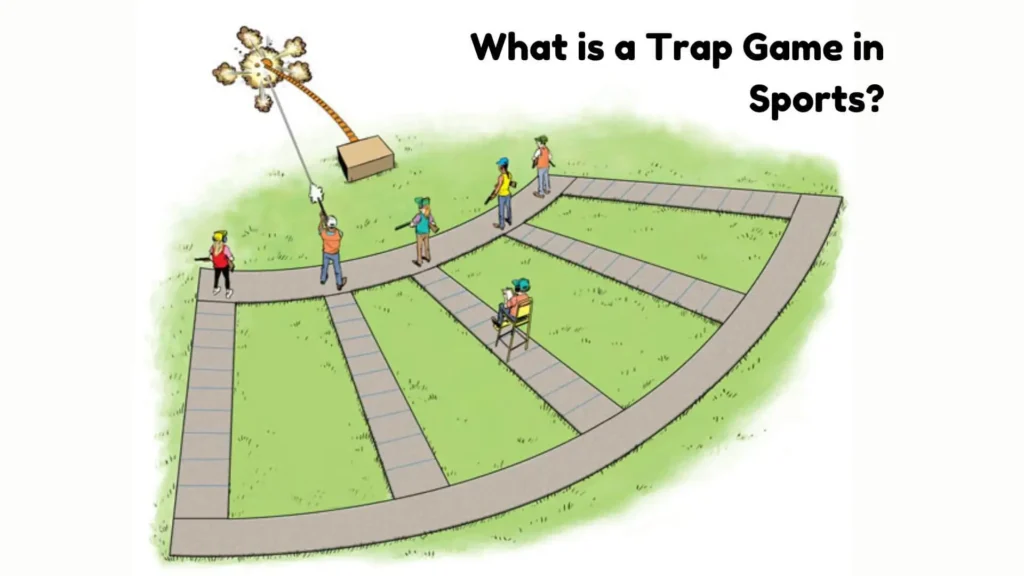What is a Trap Game in Sports? How Underdogs Win and Favorites Fall

In sports, upsets are thrilling and unpredictable. Sometimes, these surprises happen because of a phenomenon called a trap game. A trap game occurs when a stronger team underestimates a weaker opponent, often due to overconfidence, scheduling issues, or looking ahead to bigger games. This can lead to unexpected losses, hurting a team’s momentum or playoff chances.
What is a Trap Game?
A trap game is a matchup where a heavily favored team risks losing to a weaker opponent. This happens not because of a lack of talent but due to psychological or situational factors. For example:
- The stronger team might be overconfident after a big win.
- They might be distracted by an important upcoming game.
- Fatigue or poor preparation can also play a role.
Why Do Trap Games Happen?
Several factors can lead to a trap game:

Overconfidence
- When a team thinks it’s much better than its opponent, it might not prepare as hard, leading to a poor performance.
Tough Scheduling
- If a team has just played a tough game or has a big matchup coming up, they might not focus enough on the current game.
Fatigue and Travel
- Long road trips or short rest periods can tire players physically and mentally tired.
Underdog Motivation
- Weaker teams often play with extra energy, knowing they have nothing to lose.
Injuries or Rotations
- The team might not perform well if key players are resting or injured.
Read: How to Clean a Bong?
Examples of Trap Games in Sports
Trap games can happen in any sport. Here are some famous examples:
- NFL: A top team loses to a weaker opponent right before a crucial divisional game.
- College Football: A powerhouse team struggles against an unranked team because they focus on a big rivalry game.
- NBA: A championship contender loses to a struggling team after playing back-to-back games.
- Soccer: A top club drops points to a mid-table team because they’re preparing for a Champions League match.
How Can Teams Avoid Trap Games?
Great teams and coaches know how to avoid falling into the trap. Here’s how they do it:
Mental Preparation
- Coaches remind players that every game matters, no matter the opponent.
Use the Bench Wisely
- Teams with deep rosters rotate players to keep everyone fresh and energized.
Study the Opponent
- Even against weaker teams, proper scouting and film study help avoid surprises.
Strong Leadership
- Veteran players and team captains keep everyone focused and motivated.
Read: Price Charalabush Guide
Why Trap Games Matter for Fans and Analysts?
For fans and analysts, trap games add excitement and unpredictability to sports. Spotting a potential trap game can make watching sports even more fun. It’s also a great way to predict upsets and understand how teams handle pressure.
Conclusion
Trap games are a fascinating part of sports. They remind us that no team is invincible and that preparation and focus are key to success. By understanding the factors behind trap games, teams can avoid costly upsets, and fans can enjoy the drama even more. Whether you’re a player, coach, or spectator, trap games are thrilling and keep us on the edge of our seats.
About Author

- Muhammad Saif is an experienced SEO content and news writer with 4 years of expertise in creating engaging, optimized content. Skilled in keyword research, SEO strategy, and crafting timely news articles, Muhammad Saif helps brands boost visibility and connect with audiences. Known for simplifying complex topics, Muhammad Saif delivers impactful content that informs and inspires.
Latest News!
 News04/30/2025Massive Blackout Cripples Iberian Peninsula: Investigation Underway
News04/30/2025Massive Blackout Cripples Iberian Peninsula: Investigation Underway News04/26/2025KSL Aims To Provide a Positive, Constructive and National Mainstream Platform to AJK Youth: Former PM Tanver Ilyas
News04/26/2025KSL Aims To Provide a Positive, Constructive and National Mainstream Platform to AJK Youth: Former PM Tanver Ilyas Blog04/23/2025Lucy Guo World’s Youngest Self-Made Woman Billionaire
Blog04/23/2025Lucy Guo World’s Youngest Self-Made Woman Billionaire Blog04/22/2025What Happened to Lolibooru? Site Status, Alternatives & More
Blog04/22/2025What Happened to Lolibooru? Site Status, Alternatives & More







2 Comments